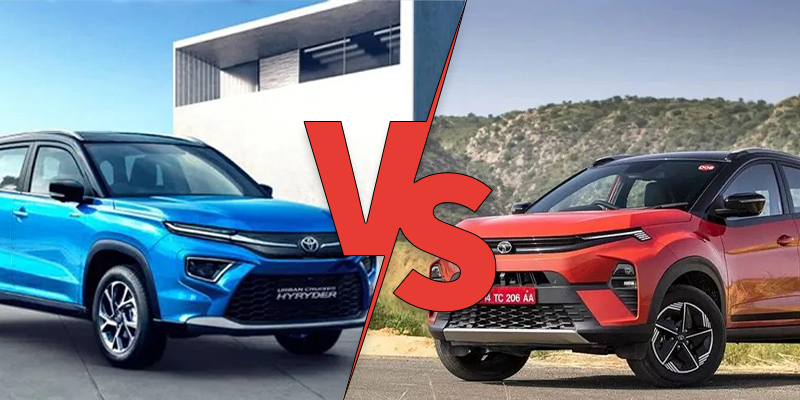Hybrid vehicles offer a compelling combination of fuel efficiency and environmental friendliness. But to ensure your hybrid car performs optimally and delivers years of reliable service, proper maintenance is key. This guide equips you with essential knowledge on hybrid cars care, covering routine maintenance practices, unique hybrid components, and valuable tips to keep your hybrid car running smoothly.
Introduction to Hybrid Car
Hybrid cars combine an internal combustion engine with one or more electric motors and a battery pack, offering better fuel efficiency and lower emissions than conventional vehicles. They utilize regenerative braking to convert energy lost during braking into electricity, recharging the battery. Hybrids can operate in electric mode, gasoline mode, or a combination of both, depending on the driving conditions. Types include parallel, series, and plug-in hybrids (PHEVs), with PHEVs able to recharge via an external source for extended electric-only driving. Hybrids are ideal for those looking to reduce their carbon footprint while enjoying the range and convenience of gasoline.
Understanding Hybrid Vehicle Maintenance
Hybrid upkeep goes deeper than routine oil changes and tire rotations. Regular maintenance is key for two main reasons. First, it keeps everything running smoothly, maximizing fuel efficiency and minimizing emissions. Second, it catches small problems early on, preventing them from turning into expensive repairs later. Hybrid cars combine a gasoline engine with an electric motor and battery pack, so maintenance involves both familiar car care and the unique electrical systems of hybrids.
Tips for Maintaining Hybrid Cars
- Regularly monitor the battery: The battery is the heart of a hybrid vehicle. Monitor its health by monitoring the charge level and running diagnostic tests as directed by the manufacturer.
- Keep Up with Oil Changes: Although hybrids rely less on their internal combustion engines, it’s still essential to change the oil regularly to maintain engine health.
- Pay Attention to Brake Maintenance: Hybrids use regenerative braking systems to recharge the battery. Ensure that your brakes are in good condition to maximize energy recovery and minimize wear on brake pads.
- Check Tire Pressure Regularly: Properly inflated tires improve fuel efficiency and handling. Monitor tire pressure monthly and adjust as needed.
- Schedule Regular Inspections: Regular maintenance inspections by certified technicians can help detect potential issues early on and prevent breakdowns.
Driving Habits That Impact Hybrid Vehicle Maintenance
Your driving habits play a significant role in the maintenance of your hybrid car. By adopting eco-friendly driving practices, you can extend the lifespan of your vehicle and maximize fuel efficiency.
Environmental Considerations in Taking Care of Hybrid Cars

Proper battery care and disposal prevent pollution. Eco-friendly fluids like bio-oils and coolants minimize environmental impact. Regenerative braking and low-resistance tires boost efficiency. Regular testing ensures compliance, and eco-driving habits further shrink your footprint. Finally, responsible recycling at the end of life keeps things sustainable.
DIY Maintenance vs. Professional Services
- Hybrid care: DIY or Pro? While you can handle routine checks like tire pressure and fluids, complex tasks demand a pro. DIY wins for visual inspections, topping up fluids, and filter replacements. But for diagnostics, complex repairs, software updates, and warranty compliance, trust a qualified mechanic. They have the expertise and tools to keep your hybrid running smoothly and sustainably.
Common Maintenance Mistakes to Avoid
Avoiding these common maintenance mistakes can help prolong the lifespan of your hybrid vehicle and prevent costly repairs:
- Neglecting the Battery: Ignoring signs of battery degradation can lead to premature failure and reduced performance.
- Skipping Regular Inspections: Regular inspections can uncover hidden issues before they escalate into major problems.
- Ignoring Warning Signs: Strange noises, dashboard warning lights, and unusual smells should never be ignored.
Hybrid vs. Non-Hybrid Maintenance: What’s Different?

While both hybrid and non-hybrid cars require regular maintenance, there are some key differences in what needs attention:
Similarities:
- Routine Maintenance: Both types of vehicles require regular oil changes, tire rotations and alignments, fluid level checks (engine coolant, brake fluid, windshield washer fluid), and air filter replacements.
Hybrid Differences:
- Hybrid Battery: Hybrids have a high-voltage battery pack that requires specific care. This may involve avoiding extreme temperatures during charging and following manufacturer recommendations for maintaining its lifespan.
- Cooling System: Hybrid batteries and electric motors generate heat, so the cooling system plays a vital role. Checking coolant levels and having the system inspected for leaks or malfunctions are crucial.
- Inverter: This component converts the battery’s DC power to AC power for the electric motor. While generally reliable, any issues with the inverter can significantly impact hybrid performance. Being alert to warning lights and consulting a qualified mechanic is important.
- Regenerative Braking: Hybrids use regenerative braking to capture energy and recharge the battery, reducing wear on traditional brakes. However, periodic brake checks are still essential.
Additional Considerations:
- Complexity: Hybrid systems involve additional electrical components compared to non-hybrid vehicles. While some routine maintenance tasks might be similar, complex repairs on hybrid components often require a qualified mechanic familiar with the technology.
- Fuel Efficiency: Proper hybrid maintenance plays a more significant role in maintaining optimal fuel efficiency compared to non-hybrid vehicles.
In a nutshell:
- Non-Hybrid: Focuses on maintaining the internal combustion engine and traditional mechanical components.
- Hybrid: This requires attention to both conventional car care and the unique electrical systems that power the hybrid technology.
Also Read: Key Differences Between Different Hybrid Technologies
Conclusion
Maintaining a hybrid vehicle is essential for ensuring its longevity, optimal performance, and eco-friendliness. By following the tips outlined in this guide, such as monitoring the battery, staying up to date with oil changes, and adopting eco-friendly driving habits, you can keep your hybrid car running smoothly for years to come. Remember to schedule regular inspections, avoid common maintenance mistakes, and be mindful of environmental considerations. With proper care and attention, your hybrid vehicle will continue to be a sustainable and efficient mode of transportation.





